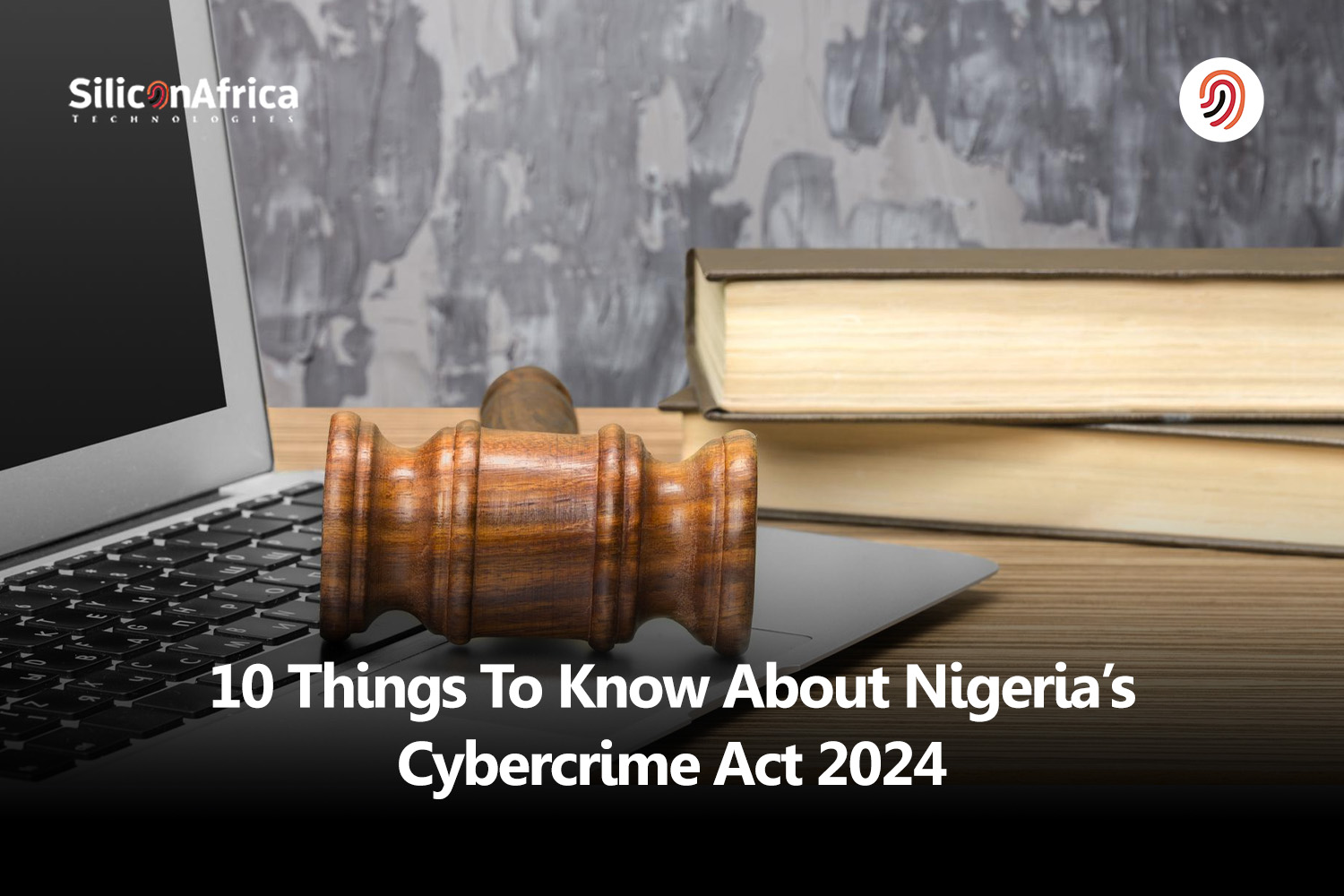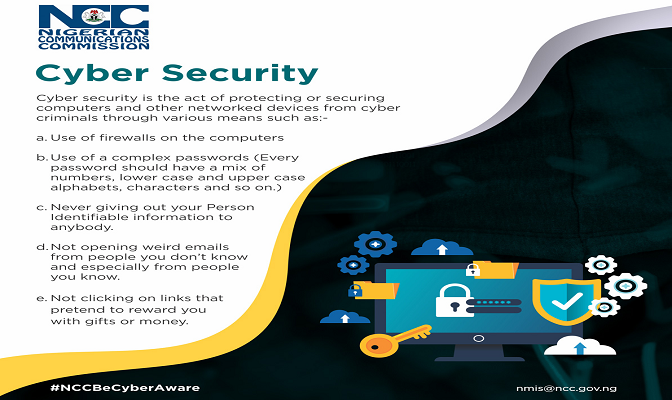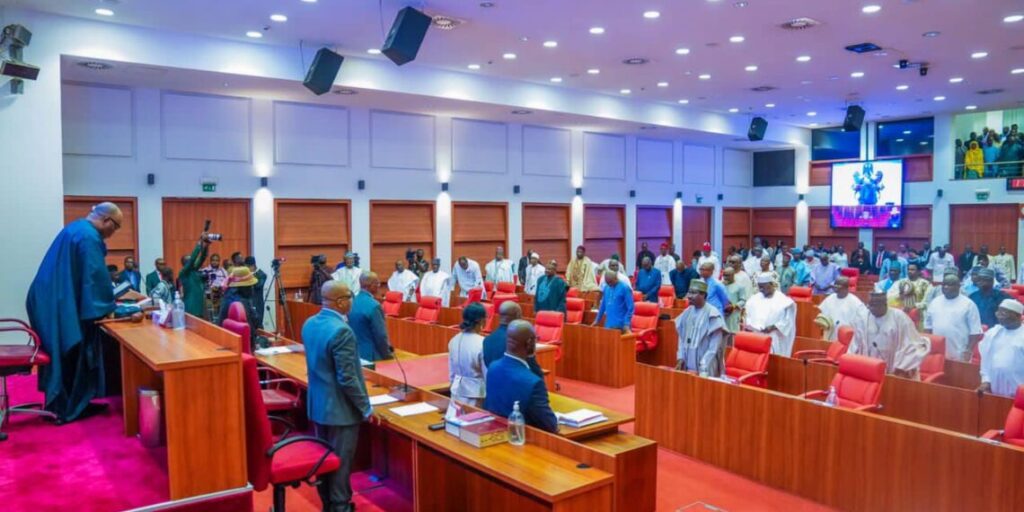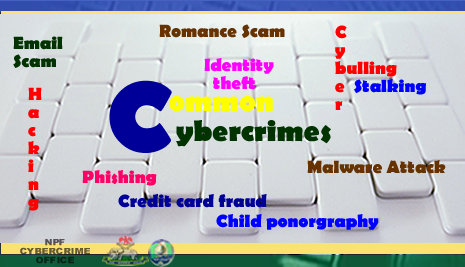Newsletter Subscribe
Enter your email address below and subscribe to our newsletter

Nigeria’s Cybercrime Act was created out of the need to tackle seemingly uncontrollable cybercrime phenomena. Nigerians spend a large amount of time online, transforming them into cyber-creatures. Cybercrime in Nigeria is growing along with the digital world.
Cyber law protects cyberspace against cybercrime by acting as a barrier. In order to stop illegal online activity, the government is dedicated to creating and implementing regulations. Cyber law in Nigeria is significantly impacted by the “Cybercrimes Prohibition and Prevention Act, 2015”.
Cybercrimes Prohibition and Prevention Act, 2015 establishes a thorough institutional, legal, and regulatory framework in Nigeria for the detection, prevention, prosecution, and punishment of cybercrime.
Along with promoting cybersecurity, the Act also protects vital national information infrastructure, electronic communications, data, and computer programmers, as well as intellectual property and private rights.
Read also – SpaceX’s Legal Home Moved from Delaware to Texas – Elon Musk
Cybercrime, as defined by Nigeria’s Cybercrime Act and the Cybercrime Prohibition and Prevention Act 2015, refers to criminal activities conducted through digital means, targeting individuals, organizations, or the state.
These acts encompass a broad spectrum of illicit activities, including unauthorized access to computer systems, data theft, and online fraud. The legislation explicitly addresses cyber-stalking and cyber-bullying, highlighting their significance in the digital landscape.
Cyber-stalking involves the use of electronic communication to harass or intimidate an individual, while cyber-bullying entails the use of digital platforms to bully or intimidate others, often with malicious intent.
The Cybercrime Act serves to deter, prevent, and prosecute these offenses, recognizing the growing threat posed by criminals exploiting digital channels.
The legislation equips law enforcement with tools to investigate and prosecute cybercrimes, emphasizing the importance of safeguarding individuals and organizations from the adverse impacts of online criminal activities.
In the contemporary digital age, understanding and enforcing laws related to cybercrime, including provisions against cyber-stalking and cyber-bullying, are essential for maintaining a secure online environment and protecting the rights and well-being of individuals within the Nigerian digital landscape.
Read also – Google CEO Sundar Pichai Uses 20 Phones at a Time
Cyber laws, particularly in Nigeria, encompass legislative frameworks designed to regulate and combat cybercrimes, safeguarding individuals, organizations, and the nation’s digital infrastructure.
Nigeria’s Cybercrime Act and the Cybercrime Prohibition and Prevention Act 2015 serve as pivotal components of this legal landscape.
The Cybercrime Act establishes a comprehensive legal framework to address a spectrum of cyber offenses, ranging from unauthorized access to computer systems to online fraud.
It provides law enforcement agencies with tools and mechanisms to investigate, prosecute, and prevent cybercrimes, ensuring a robust response to the evolving nature of digital threats.
Within this legislative framework, specific attention is given to cyber-stalking and cyber-bullying. Cyber-stalking involves the use of electronic communication to harass or intimidate individuals, while cyber bullying employs digital platforms for malicious intimidation.
The laws expressly address these issues, acknowledging the psychological and emotional impact on victims. By incorporating provisions against cyber-stalking and cyber-bullying, Nigeria’s cyber laws reflect a commitment to creating a safer online environment.
The legal framework not only acts as a deterrent against cybercrimes but also emphasizes the importance of protecting individuals from harassment and intimidation within the digital realm, promoting a secure and respectful digital space.
Read also – How To Take Screenshots On Your iPhone

This is a high-level summary of the provisions of the Cybercrime Act 2015 and items to be mindful of.
The 2015 Nigerian Cybercrime Act empowers the President to designate Critical National Information Infrastructure, implement policies, guidelines, and audits for its protection.
In addition to various sanctions for less serious crimes, the Nigerian Cybercrime Act 2015 stipulates the death sentence for offenses against a system or network that have been recognized as key national infrastructure of Nigeria and cause an individual’s death.
According to Nigeria’s Cybercrime Act 2015, hackers who are found guilty of forcibly entering a computer system or network may face up to N10 million in fines or five years in jail, depending on the reason for the breach.
The Cybercrime Act 2015 includes provisions for identity theft, which carries a minimum sentence of three years in jail, a maximum fine of N7 million, or both.
For which the maximum penalty is ten years in jail, a fine of at least N20 million, or both.
It imposes penalties that, depending on the seriousness of the offense, can range from a fine of at least N2 million to a term of at least 1 year in jail or both, or up to a term of at least 10 years in jail or a fine of at least N25 million.
Defined as the registration or use of an Internet domain name with the malicious purpose to benefit from the goodwill of another person’s brand or to make money by selling it to its legitimate owner, is prohibited by the Nigerian Cybercrime Act of 2015.
Prohibits the public dissemination of racist and xenophobic content via computer networks and systems (such as Facebook and Twitter).
According to the Cybercrime Act of 2015, service providers must maintain subscriber information and traffic data while respecting each person’s constitutional right to privacy.
Where a judge issues a court order and there are good reasons to believe that the information in the communications is needed for criminal investigations or procedures.
Read also – 8 Major Benefits of Buying from iStore Pre-owned SA in 2024
Cybercrime in Nigeria spans a wide range of activities, reflecting the evolving nature of digital threats.
Some prominent categories of cybercrime in Nigeria include:
Cyber-stalking and Cyber-bullying, phishing emails, the sharing of child porn, several types of spoofing, credit card fraud, human trafficking, identity theft, and online-related libel or slander are examples of cybercrimes against people.
The trafficking, distribution, publication, and dissemination of pornographic and indecent content is one of the most significant forms of cybercrime that exists today. One cannot exaggerate the possible devastation that such a crime could do to humanity.
This is the kind of cybercrime that, if left unchecked, might harm and injure future generations as well as hinder their ability to advance.
Cybercrime against any kind of property is the second category of cybercrime.
These crimes include hacking, virus transmission, computer vandalism, copyright infringement, distributed denial of service (DDoS) assaults, cyber and typosquatting, and intellectual property rights (IPR) violations.
Cybercrime against the government is the third classification of cybercrime. When these crimes are directed against the government are seen as acts of war and an assault on national sovereignty.
Cybercrime against the government includes things like hacking, obtaining access to private information, cyberwarfare, cyberterrorism, and using pirated software.
The growth of the Internet has shown that individuals and organizations are using cyberspace as a means of intimidating citizens of a country and threatening governments elsewhere.
The act of breaking into a website controlled by the military or the government is considered terrorism. The Cybercrimes Act of 2015 addresses the majority of these cybercrimes.

The Act offers Nigerian authorities an efficient, cohesive, and all-encompassing legal, regulatory, and institutional framework for the outlawing, averting, identifying, prosecuting, and punishing of cybercrimes.
Cybercrimes highlighted under this ACT include:
Read also – How to Pay for your DStv Subscription via Mpesa in Kenya 2024

The main examples of cybercrimes are as follows:
Cyber-bullying and cyber-stalking are distinctive forms of online harassment, and their prohibition is explicitly addressed by Nigeria’s Cybercrime Act and the Cybercrime Prohibition and Prevention Act of 2015.
Cyber-bullying involves the use of digital platforms to intentionally harass, threaten, or intimidate individuals, causing psychological and emotional distress.
This can manifest through offensive messages, spreading false information, or creating hostile online environments. The Cybercrime Acts recognize the serious consequences of cyber-bullying, aiming to protect individuals from such harm.
Cyber-stalking, as defined by the legislation, encompasses the persistent and unwanted pursuit of an individual online, leading to fear, anxiety, or emotional distress.
This may involve intrusive monitoring, sending threatening messages, or engaging in unwanted online communication.
The Cybercrime Acts explicitly address cyber-stalking, recognizing the gravity of this offense and providing legal recourse for victims.
Legislation empowers law enforcement, reflecting Nigeria’s commitment to secure digital spaces against online harassment. Criminalizing cybercrimes sends a strong message, fostering a safer and more respectful digital space.
Phishing and online fraud are prevalent cybercrimes, and Nigeria’s Cybercrime Act along with the Cybercrime Prohibition and Prevention Act 2015 play crucial roles in addressing these malicious activities.
This involves deceptive techniques where cybercriminals masquerade as trustworthy entities to trick individuals into divulging sensitive information, often through fake emails or websites.
The Cybercrime Acts recognize the severity of phishing and provide legal measures to combat such fraudulent activities, aiming to protect individuals and organizations from falling victim to these deceptive practices.
Online fraud encompasses a broader range of illicit activities conducted over the internet, including identity theft, financial scams, and other deceptive practices.
The legislative frameworks in Nigeria explicitly address online fraud, emphasizing the importance of safeguarding individuals and entities from financial harm. These Acts empower law enforcement agencies to investigate and prosecute cases related to phishing and online fraud, contributing to a secure digital landscape.
By criminalizing these activities, Nigeria underscores its commitment to combating cybercrimes that exploit unsuspecting individuals and organizations, fostering a more resilient and trustworthy online environment.
The legal frameworks serve as deterrents and provide a foundation for holding cybercriminals accountable for their actions in the realm of digital deception and fraud.
Nigeria’s Cybercrime Act and the 2015 Cybercrime Prohibition Act explicitly address unauthorized access and hacking offenses involving illicit entry into computer systems.
These acts criminalize the unauthorized access of computer systems and hacking activities, providing legal mechanisms to prosecute perpetrators.
The legislative frameworks emphasize the significance of safeguarding digital infrastructure, aiming to curb cybercrimes that exploit vulnerabilities for malicious purposes.
Criminalizing unauthorized access and hacking in Nigeria establishes a robust legal foundation, combating threats to data integrity and ensuring digital security for individuals and organizations.
Intellectual Property (IP) theft, a significant cybercrime, involves the unauthorized acquisition, use, or distribution of copyrighted materials or proprietary information.
Nigeria’s Cybercrime Act and the Cybercrime Prohibition and Prevention Act of 2015 explicitly address IP theft, recognizing the economic and creative rights it jeopardizes.
These acts criminalize activities such as illegal reproduction, distribution, or sale of copyrighted materials and provide legal frameworks for the prosecution of IP theft cases. By safeguarding intellectual property, these legislations contribute to fostering innovation, creativity, and economic growth.
The laws establish a clear stance against the infringement of digital content and proprietary information, underscoring the importance of protecting creators and innovators from unauthorized use and exploitation in the digital landscape.
Identity theft, a serious cybercrime, involves the unauthorized use of someone’s personal information for fraudulent activities. Nigeria’s Cybercrime Act and the Cybercrime Prohibition and Prevention Act of 2015 criminalize identity theft, providing legal measures to combat this offense.
These acts recognize the potential financial and personal harm caused by stealing and misusing personal information.
By addressing identity theft, the legislative frameworks aim to protect individuals from the adverse consequences of unauthorized use of their identity, reinforcing the importance of privacy and security in the digital landscape.
The National Security Adviser’s office coordinates the efforts of the security and law enforcement agencies in accordance with the 2015 Cybercrime Act. The Attorney-General of the Federation strengthens and updates Nigeria’s current cybercrime legislative frameworks.
Along with developing the institutional capacity required for the successful implementation of the 2015 Cybercrime Act’s provisions.
All law enforcement, security, and intelligence agencies start, develop, or arrange training programmes for officers accused of cybercrime on a national or international scale in cooperation with the Office of the National Security Adviser.
Read also – How to Take Screenshots on all Android Phones
Report cyber-stalking and cyber-bullying to law enforcement or designated online platforms for reporting cybercrimes.
Identity theft is a criminal offense under Nigeria’s Cybercrime Act, with guilty individuals facing legal consequences like fines and imprisonment based on offense severity.
Yes, Nigeria’s Cybercrime Act includes provisions that address phishing, recognizing it as a fraudulent activity. The Act provides legal measures to combat deceptive practices aimed at tricking individuals into revealing sensitive information.
The 2015 Cybercrime Act criminalizes intellectual property theft, prosecuting illegal reproduction, distribution, or sale offenses.
Nigeria’s Cybercrime Act addresses unauthorized access and hacking, enabling legal recourse and prosecution for perpetrators of such offenses.
Nigeria’s Cybercrime Act and 2015 Prohibition Act combat various cybercrimes, including identity theft, phishing, and intellectual property theft.
The frameworks highlight protecting individuals, organizations, and digital infrastructure from malicious activities in the ever-evolving digital landscape. By providing legal measures, consequences, and frameworks for prosecution, these Acts contribute to creating a secure and resilient online environment.
Nigeria’s dedication to combating cybercrimes, including bullying and stalking, underscores a commitment to protecting citizens and fostering a trustworthy digital space.
As technology evolves, these laws are crucial tools to adapt and establish a legal foundation for addressing emerging cybercrime challenges in the dynamic realm of cyberspace.